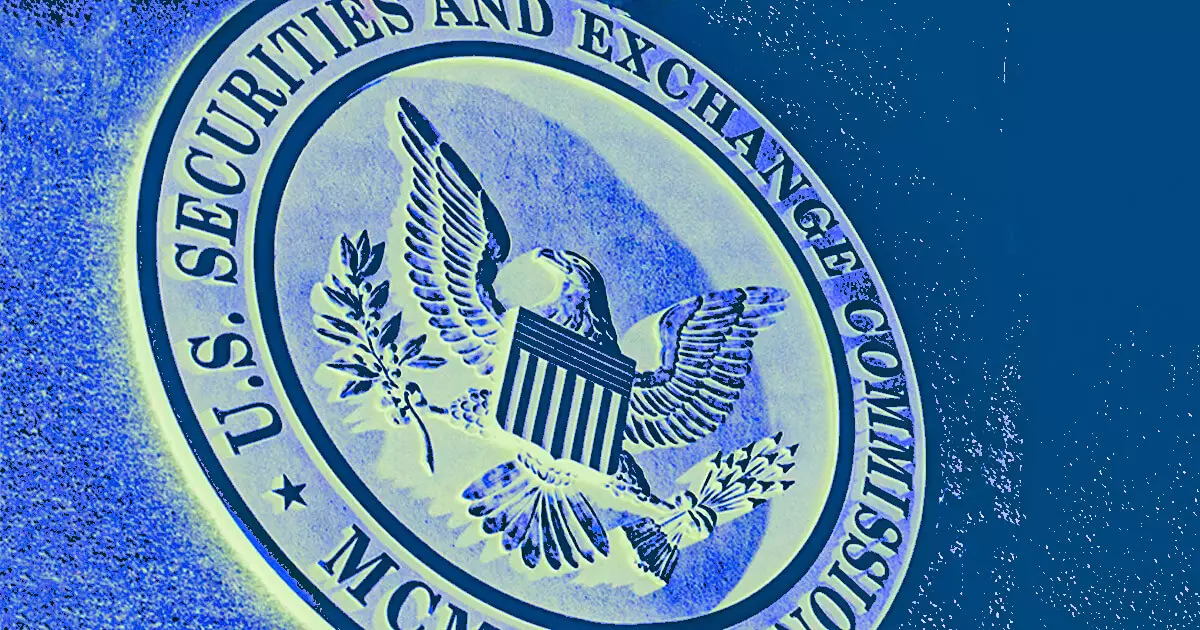In a striking dissent, SEC Commissioners Hester M. Peirce and Mark T. Uyeda have voiced concerns over the commission’s enforcement action against the Flyfish Club, a non-fungible token (NFT) collection that grants access to an exclusive dining experience. Their critique, articulated in a September 16 letter, raises profound questions about the applicability of existing securities laws to innovative digital assets like NFTs. This case sheds light on the potential overreach of regulatory frameworks in areas that may require more nuanced and flexible approaches.
The heart of the controversy lies in Flyfish Club’s model, which offers NFTs as a ticket to an exclusive restaurant and bar experience. With 3,000 NFTs sold, generating more than $14 million in revenue, the SEC’s subsequent legal action — alleging an unregistered offering of crypto asset securities — raises critical questions about categorization. The dissenting commissioners argue that labeling these NFTs as securities fails to recognize their primary function as utility tokens, intended to furnish holders with unique culinary experiences rather than financial returns. This distinction is essential; if NFTs are deemed securities, they become subject to a stringent regulatory framework that may stifle innovation in the rapidly evolving digital asset space.
At the core of the SEC’s reasoning is the Howey Test, a standard that determines whether an asset qualifies as a security. Peirce and Uyeda assert that this test is inapplicable to Flyfish Club’s NFTs. The commissioners contend that the expectations of buyers were not based on financial investment, but rather on access to exclusive, desirable experiences. Their argument highlights a fundamental issue in current regulatory practice: the challenge of applying outdated definitions to emerging technologies. By imposing traditional securities classifications on novel digital assets, there is a risk of curbing innovation and discouraging creative business models that do not conform to legacy frameworks.
The dissenting views of Peirce and Uyeda extend beyond a single case; they signal broader implications for the NFT market as a whole. Their call for clearer guidance from the SEC regarding non-securities NFT creators is a plea for a regulatory environment that fosters innovation rather than fear. The commissioners warn that continued enforcement actions based on a flawed application of securities laws could set dangerous precedents, stifling the very creativity that drives the evolving landscape of digital assets.
The tension between regulators and the NFT community has further manifested in actions against platforms like OpenSea, which has been threatened with regulatory sanctions for allegedly hosting securities on its marketplace. This kind of regulatory environment creates uncertainty that could deter potential creators and investors alike, leading to a chilling effect on the burgeoning NFT market.
As the landscape shifts and new technologies continue to emerge, regulatory bodies must adapt to these changes with a balanced approach. Commissioners Peirce and Uyeda’s dissent underscores the need for the SEC to evolve alongside advancements in the digital economy. Encouraging experimentation while ensuring consumer protections are in place should be the focus, rather than restraining innovation through punitive measures.
The Flyfish Club case serves as a microcosm of the ongoing struggle between regulatory frameworks and digital innovation. Striking a balance will be essential to ensure that the potential of NFTs and other digital assets can be realized without the heavy hand of regulation stifling creativity and growth. As the dialogue continues, it is crucial for regulators to listen to the voices advocating for clarity and flexibility in this dynamic and rapidly changing market.

